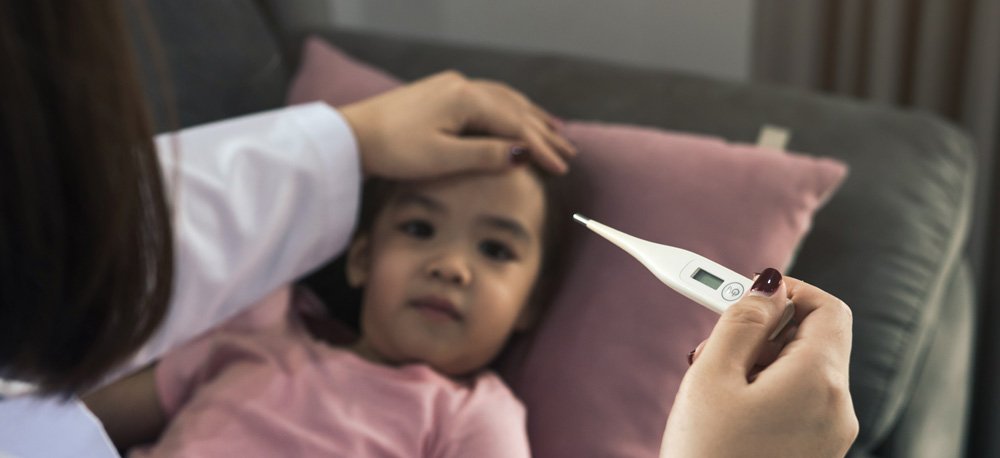-
October 15, 2021
-
0


Insomnia In Teens Can Cause Heart Attacks
A vast number of adolescents are not getting sleep regularly. Though this may not come as a surprise to many parents, this trend can have a worrying impact on teenagers’ heart health. Health experts recommend more than 8 hours of sleep for adolescents aged 14 – 17 and more than 9 hours of sleep for those aged 11 – 13. Only about 50% of children get more than 7 hours of sleep, with older teens sleeping even less than their younger counterparts.
Why is sleep important?
As adults with many responsibilities, a good night’s sleep may seem like a luxury. However, sleep plays an integral role in the body’s recovery and optimal functioning. Good quality sleep is important for mental health, energy levels, blood pressure, metabolism, and – in particular – cardiovascular health.
Insomnia has high comorbidity with many cardiovascular diseases, including coronary heart disease, hypertension, incident cardiovascular disease, and heart failure. Additionally, regular poor sleep increases the risks of medical conditions such as diabetes and obesity and shortens life expectancy.
What are the risks for our teenage children?
Previous research has found links between insomnia in children and childhood obesity, and consequently, with higher blood pressure. As per a study published in the journal Pediatrics, researchers found that nearly 33% of adolescents slept for around 7 hours every night and that nearly half of them were fully asleep for less than 85% of the sleep time. All in all, the median sleep duration was a measly 7.35 hours every night for around 800 adolescents in the study ranging 11 – 17 years in age.
Researchers found that teenagers who did not get adequate sleep regularly had a higher body mass index (BMI) and belly fat, high blood pressure, abnormal cholesterol or blood lipids, and insulin resistance – a condition that increases the risk of diabetes.
All these comorbidities can drastically increase the risk of cardiovascular disease in teenage adolescents.
Why are our teenagers not sleeping properly?
Though medical conditions such as sleep apnoea affect sleep patterns directly in around 25% of men and around 10% of women, the primary cause of poor quality and inadequate sleep is mostly down to the lifestyle and poor sleeping habits.
Teenagers are caught between long school days, homework, projects, extra-curricular activities, with early school timings contributing to less sleep. With Generation Z brought up on mobile devices and social media, phone screens and computers take up a majority of the attention span of young and older teens. They ignore sleep, stay up late with the blue light from their devices keeping their brains awake, making it harder for them to fall asleep. In fact, the CEO of Netflix, Reed Hastings, once declared that the streaming service’s biggest competition is sleep – and that they’re winning.
How do we get teenagers to improve their sleeping habits?
When it comes to sleep and its dangers to our teenager’s heart health, we cannot just sit back and claim that “teens will be teens.” Their future health is at risk and this situation demands action.
The following tips can help your teenagers get the sleep they need:
Develop discipline with devices and time on electronics:
Make a rule that electronic screens and devices are powered down close to an hour before bedtime. Have your teen put his or her phone, tablet, laptop, and other mobile devices somewhere besides his or her room.Light-emitting devices and “blue light,” in particular, block the release of the sleep hormone melatonin and delay sleep. Also, just knowing that the device is at an arm’s length and new content and notifications is available in the app feed are adequate to keep your teen’s mind awake.
-
Plan and prioritise sleep:
If daily activities and school work make it impossible for your teen to get the necessary 8 hours of sleep, something has to give. Sit with your child, map out the day, and evaluate the way your teen spends his or her day. You will soon find the activities to prioritise to ensure good sleep for your teen.
Go sugar- and caffeine-free after 5 PM:
The caffeine and “sugar rush” from energy drinks, sugary sodas, and other sweets stay in your teen’s system for about 4 to 5 hours. Staving off these foods well before sleep time will help negate their ability to keep your child awake past his or her bedtime.
Set sleep goals:
Use reminders or alarms to remind your teenager of the time to start winding down and settle down to sleep. You can also encourage your teenager to make “sleep pacts” with his or her friends so that they all turn off their phones and say their goodnights at the same time.
Maintain a regular schedule:
Do not fall into the trap of “catching up on sleep” on weekends. Averaging out lost sleep over weekdays/ school nights with more sleep during weekends sounds like a tempting idea to maintain good cumulative sleep hours, but is a lost cause. Regular nightly sleep of good quality is what will most benefit your teenager in the long term.
Our teenagers’ future is the most important priority for us. That is why we warn them against developing bad habits and the risks of substances such as tobacco, drugs, and alcohol. This is precisely why we need to talk to them and help them understand the importance of sleep as well. Good sleep is necessary for your child’s development and good health and insomnia poses a serious threat to these. To learn more about how insomnia can affect your teen’s health or cardiovascular health, reach out to the best cardiologists in Bangalore at the Sagar Heart and Vascular Institute.
Contact
JAYANAGAR
BANASHANKARI






